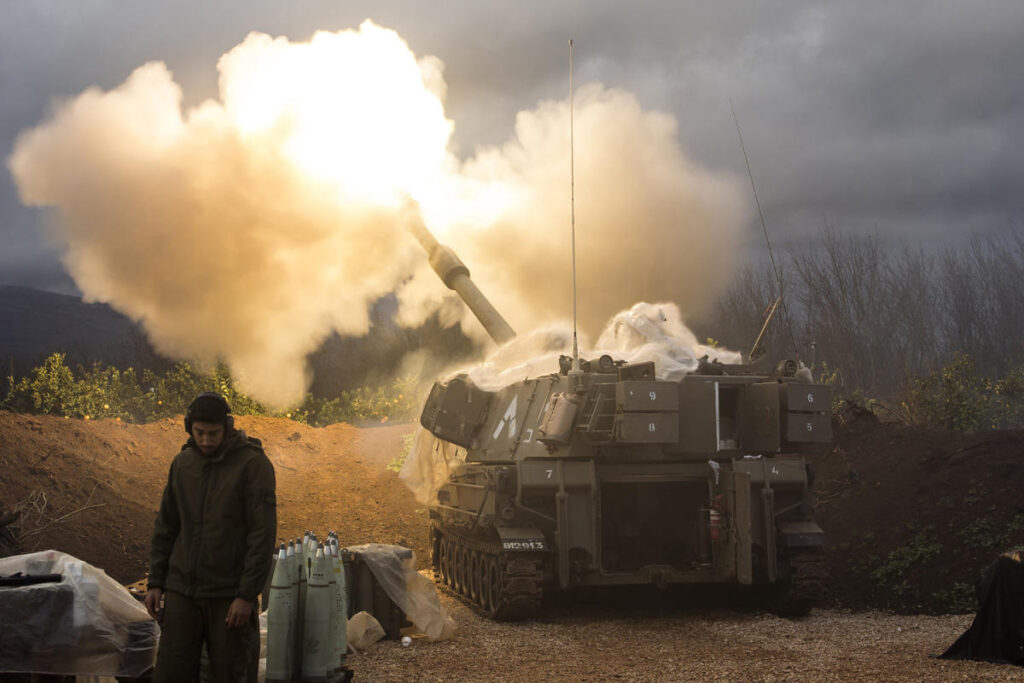In light of the escalating conflict involving Israel and Hezbollah, the Biden administration has expressed support for Israel’s military actions aimed at degrading Hezbollah, a prominent Iran-backed militant group and political player in Lebanon. This shift in U.S. policy comes after efforts to broker a cease-fire have faltered, marking a strategic pivot towards supporting Israel’s goal of forcing Hezbollah to withdraw from southern Lebanon. The administration has articulated a vision of a reformed Lebanese political landscape, where a weakened Hezbollah could facilitate a new presidential election, allowing for the Lebanese government to assert greater control and reduce the militant influence along the southern border with Israel. State Department spokesperson Matthew Miller emphasized Israel’s sovereign right to engage in limited military actions to weaken Hezbollah and reiterated the ultimate goal of returning to the stipulations set forth in the U.N. Resolution 1701, which aims to establish peace and security following the 2006 conflict between Israel and Hezbollah.
The agenda of implementing the U.N.’s 1701 resolution and restoring a semblance of stability in Lebanon presents significant challenges, particularly in light of Hezbollah’s substantial military build-up. Over nearly two decades, the group has amassed tens of thousands of missiles and sophisticated weaponry, posing an ever-present threat along the Israeli border. Additionally, Lebanon is grappling with profound internal crises, including a political leadership vacuum exacerbated by the absence of a president since 2022, along with grave economic conditions that have plunged many citizens into poverty. Since the recent outbreak of violence on October 7, following deadly Hamas attacks on Israel, Hezbollah has also engaged in aggressive military actions, launching missiles into northern Israel, further complicating the region’s security dynamics and displacing thousands of civilians in both Israel and Lebanon.
The Biden administration’s stance is rooted in a shared sense of frustration with the U.N. peacekeeping mission, known as UNIFIL, which has, according to both U.S. officials and military analysts, failed to impede Hezbollah’s military preparedness. Military experts like retired Admiral James Stavridis have been critical of UNIFIL’s inability to enforce a demilitarized zone, a key provision that should have prevented Hezbollah from entrenching itself near the border. The lack of effective oversight has necessitated Israeli military actions, and as such, U.S. officials argue that strengthening legitimate Lebanese state institutions – primarily the Lebanese Armed Forces – is critical for restoring stability. U.S. Ambassador Robert Wood has pointed out that a sovereign and functioning Lebanese state is essential for mitigating Hezbollah’s influence and ensuring effective control over the territory.
However, achieving a robust Lebanese state remains elusive, especially as Hezbollah continues to exert common influence in parliament and public life. The group has actively obstructed the election of a president not aligned with its interests, contributing to a legislative impasse that hinders necessary economic reforms. Despite losing its majority in the 2022 elections, Hezbollah remains a dominant force in Lebanese politics, effectively retaining its status as a significant player among Lebanon’s Shia Muslims, the largest sectarian group in the country. The U.S. faces a complex challenge, as any military or political action taken against Hezbollah must be carefully calibrated to avoid exacerbating the situation or inadvertently empowering the group further.
U.S. Secretary of State Antony Blinken has engaged in diplomatic efforts to gather support for a political resolution that could pave the way for change in Lebanon, though some critics have expressed concerns that this could lead to unwarranted U.S. interference in the country’s political future. The Biden administration remains cautiously optimistic that a weakened Hezbollah could result in a political breakthrough and the eventual implementation of U.N. Resolution 1701. Nonetheless, experts like Jeffrey Feltman caution against overreaching military interventions, which could lead to unintended consequences and a resurgence of Hezbollah’s power.
As the situation remains perilous, the caretaker Lebanese Prime Minister Najib Mikati has indicated the urgency of conducting a presidential election, while concurrently seeking a cease-fire resolution from the U.N. Security Council. However, numerous voices within Lebanon maintain that as long as Hezbollah retains the backing of Iran, any calls for disarmament or political reform would be futile. These sentiments underscore that any serious efforts towards political or military resolution require halting Israeli strikes characterized as aggressive actions to protect innocent civilians in Lebanon. Political analyst Kassem Kassir emphasizes that without a cessation of hostilities, there cannot be meaningful discussions regarding Lebanon’s political landscape or the longstanding implementation of U.N. Resolution 1701. Given the complexity of the situation, any diplomatic pursuits must be undertaken with a nuanced understanding of the broader implications on regional stability.

